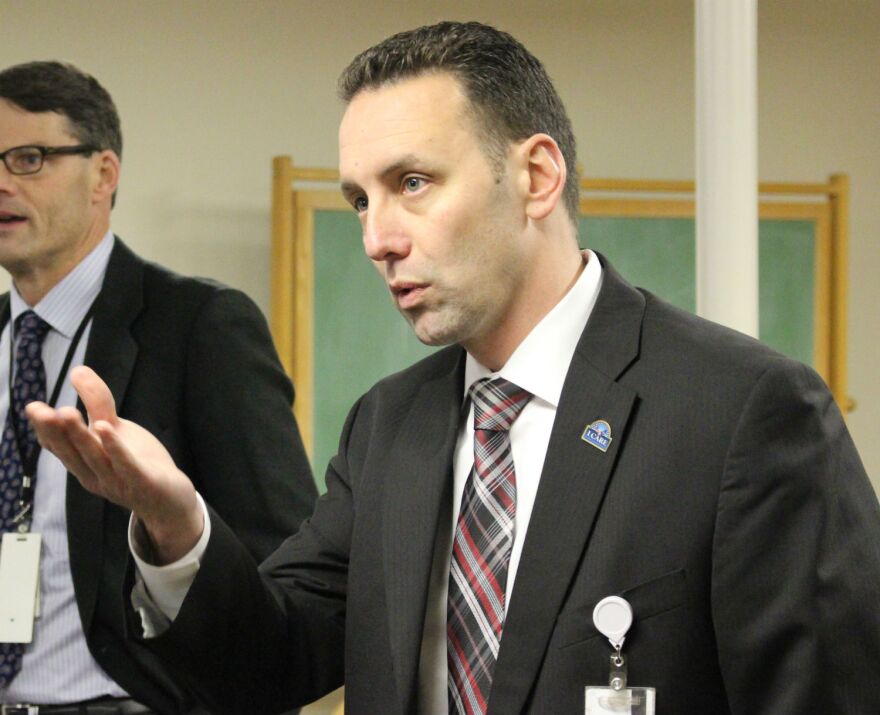The Department of Veterans Affairs Medical Center in White River Junction, Vt. experienced one of the worst budget deficits among New England VA hospitals last year.
The hospital needed an additional $8.5 million to meet expenses at the end of the last fiscal year, roughly four percent of its total budget. The VA regional office in Massachusetts, known as VISN 1, provided that funding.
The White River Junction, Vt. VA hospital serves more than 26,000 veterans in Coos, Grafton, Sullivan and Cheshire Counties in New Hampshire as well as the entire state of Vermont.
Cody Couch is Chief Financial Officer at VISN 1, which often acts as a budgetary safety net for hospitals in New England. He says in this case, the White River Junction VA hired too many people.
"They grew too quickly and the budget model doesn't support that level of hiring," he said.
White River Junction VA Director Al Montoya says the hospital hired 198 new staff members over the past two years.
"Any time you do that purposefully, you have to realize that there's going to be an impact on the budget," Montoya says.
In dealing with this budget shortfall, officials at the White River Junction VA found that the hospital was not adequately monitoring how its money was being spent.
For example, some of the hospital's programs have specific pots of money reserved for specific purposes. Officials weren't adequately monitoring whether those specific pots were the first source of funding for the projects they were designed to fund.
"They did not properly control for the fact that there are these various streams of funding," says Couch.
Montoya says the quality of care at the hospital did not suffer as a result of the budget shortfall and that services for and encounters with veterans increased during this period.
White River Junction VA leaders searched for ways to reduce the amount of financial assistance needed from VISN 1 and cut $600,000 in a contract with an ambulance company that provided "special mode" transportation used by veterans in wheelchairs.
Matt Mulcahy, associate director of the White River Junction VA Medical Center, says the hospital opted to use more of its own resources for that kind of transportation.
"That will offset or reduce the burn rate, for example, of our estimated amount that we're going to spend on, say, special mode transportation for the year," Mulcahy says.
VA hospitals in Manchester, New Hampshire and Togus, Maine also received about $6 million each from VISN 1 to plug budget holes. A spokesperson for that office says in those hospitals the budget deficits were the result of expanding services.
Mulcahy says funding for the VA hospital in White River Junction has increased this year, but it's unclear how this year will turn out. He says when it comes to the budget, things are always changing.
"It's like trying to hit a bulls-eye with a target that's doing figure eights in front of you," he says, "but we're not in the same boat that we were in last year."








